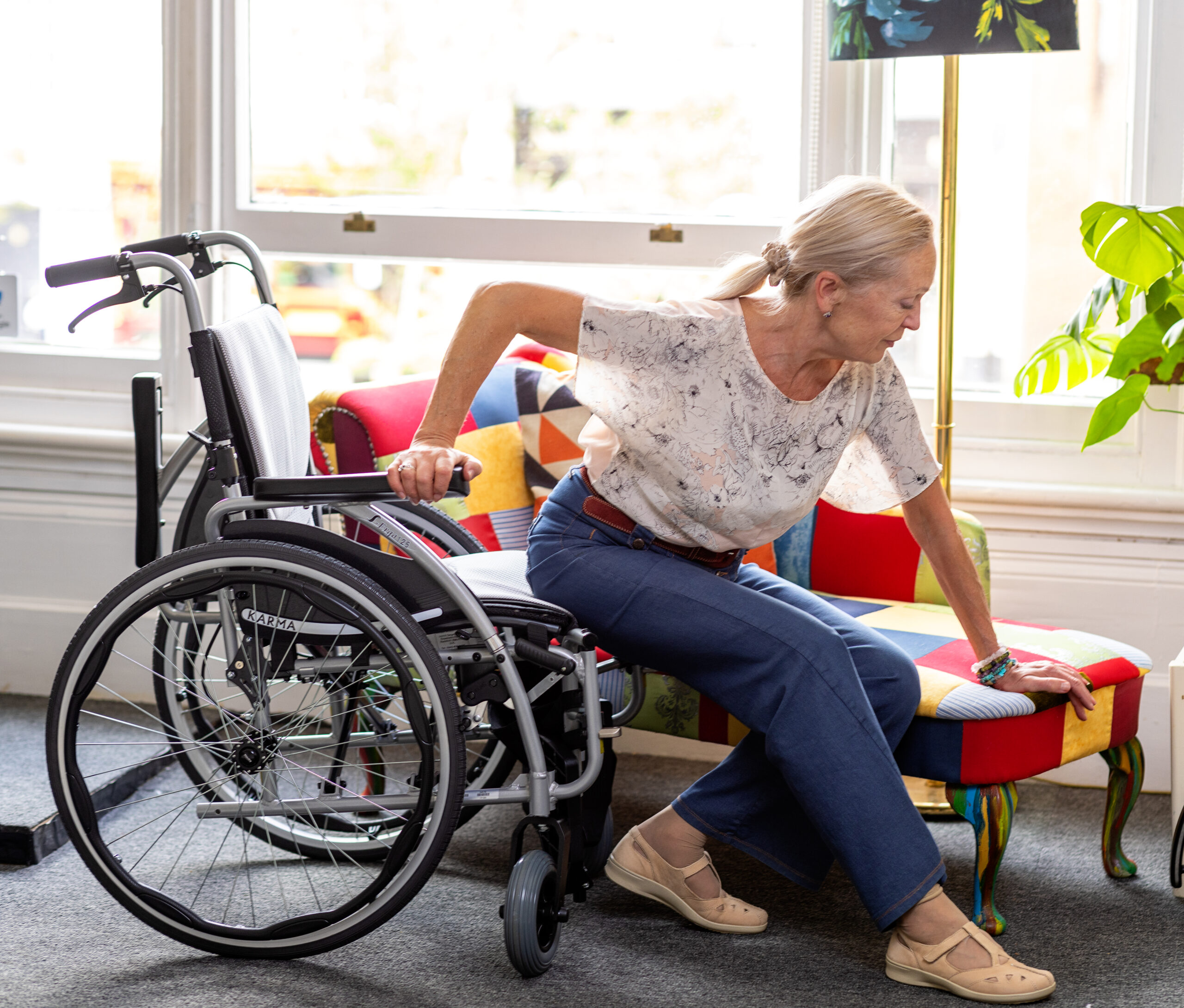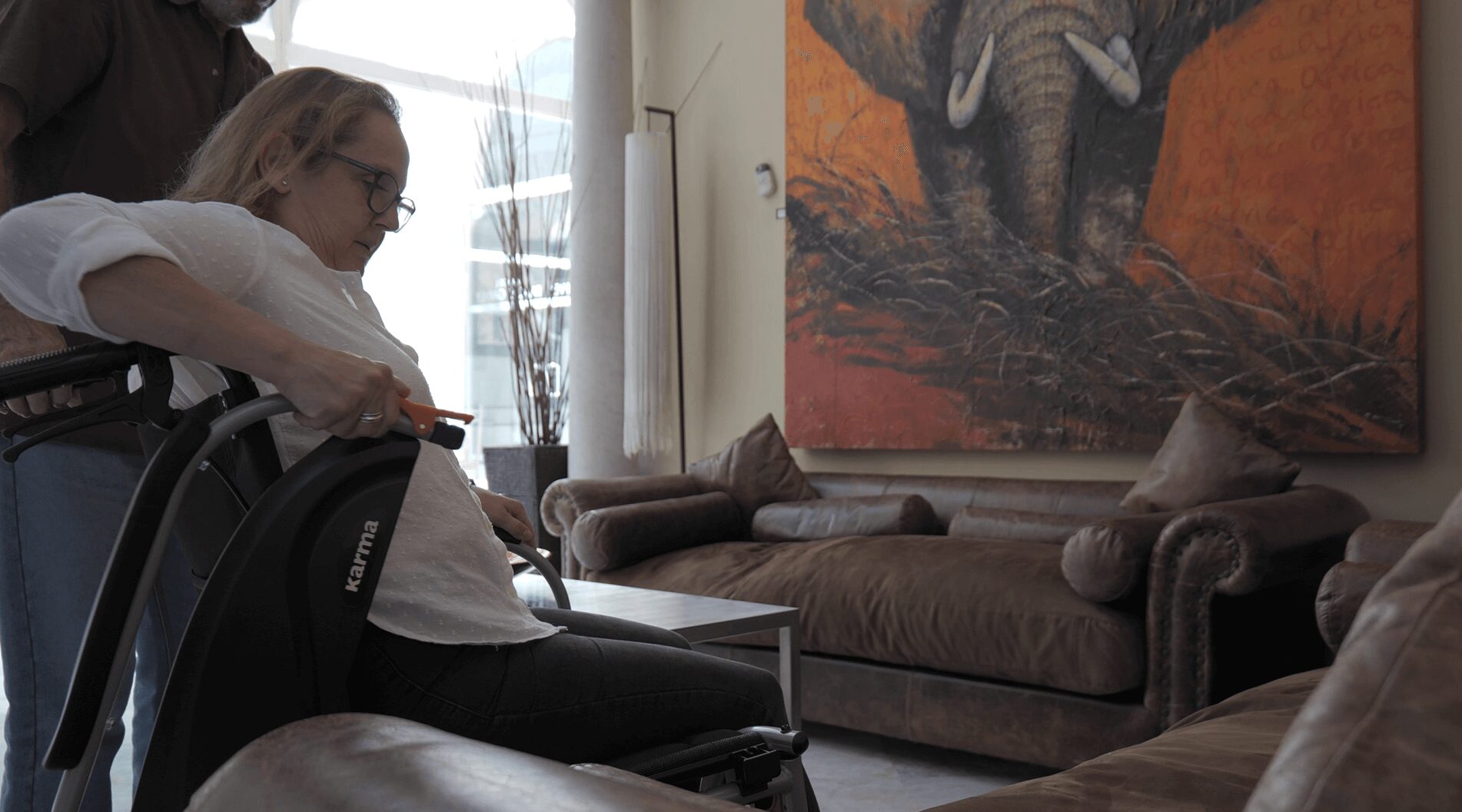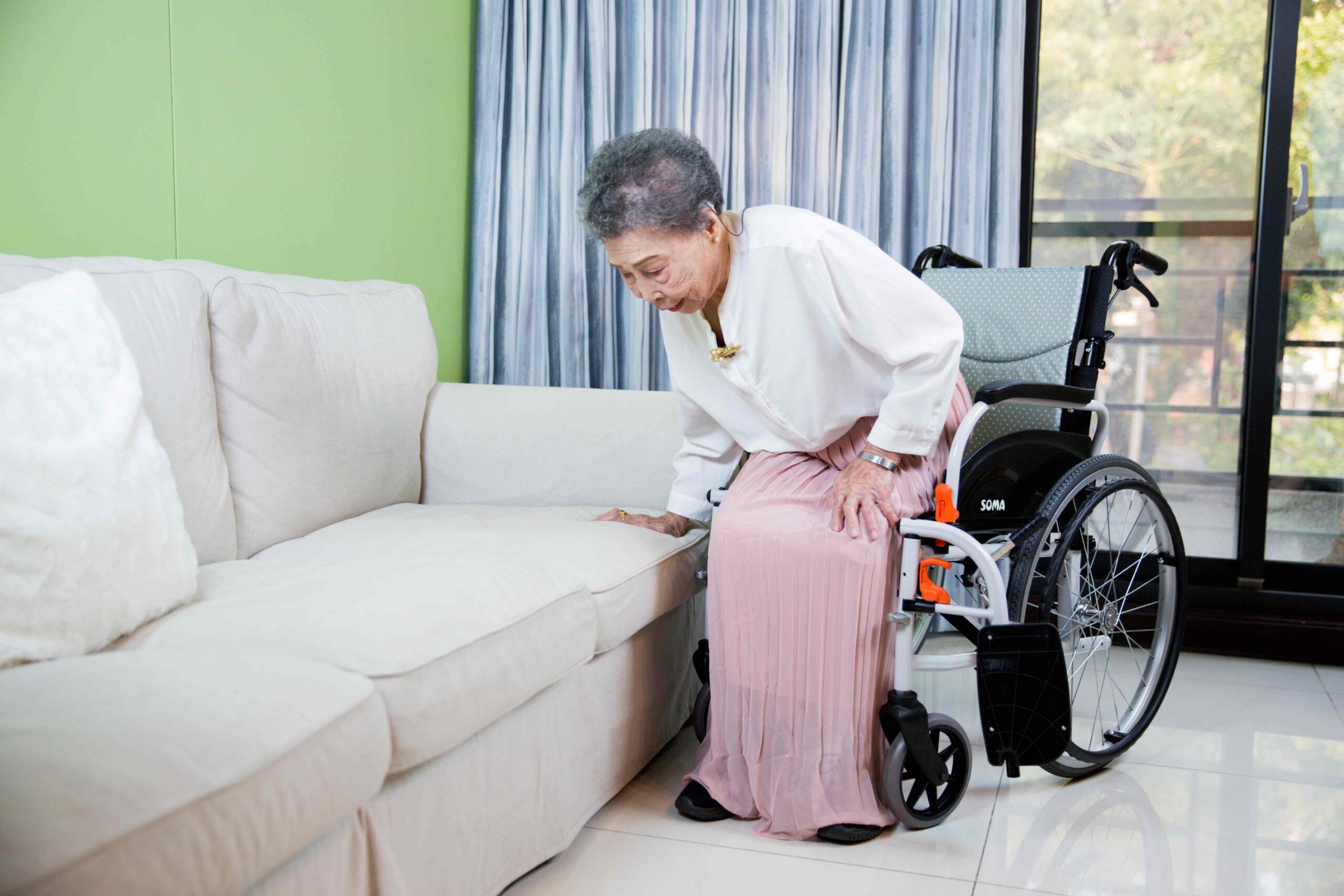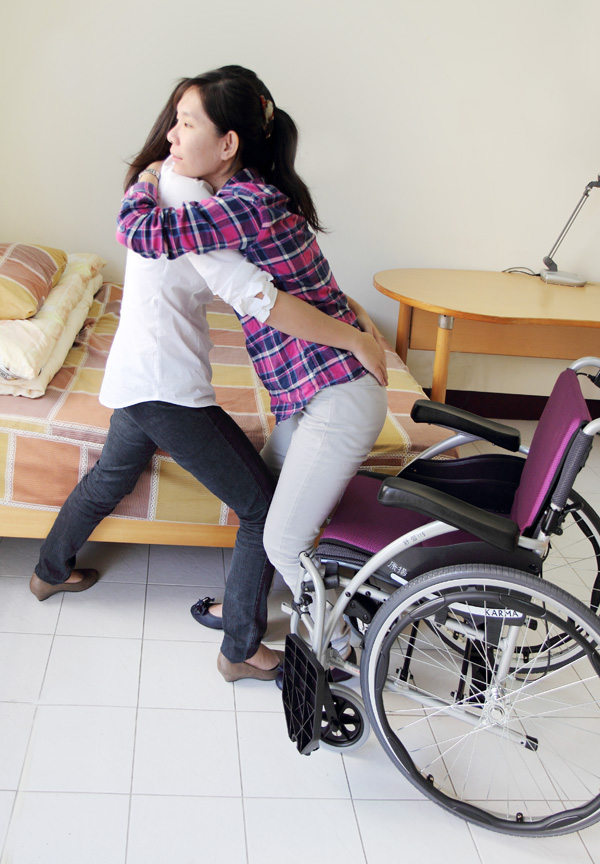What Is a Transfer Wheelchair and Who Needs It?

A transfer wheelchair is designed specifically to make transferring in and out of the chair easier and safer—either independently or with caregiver assistance. Unlike transport wheelchairs, which prioritize lightweight travel, transfer wheelchairs focus on facilitating lateral or angled movement during daily routines.
They are ideal for
- Spinal cord injury (SCI) users or individuals with good upper-body strength who can perform self-transfers
- Post-surgery or elderly users who require caregiver support to transfer between surfaces
- Caregivers who assist users in confined spaces like bathrooms, bedsides, or car doors
Key Features and Functions of a Good Transfer Wheelchair

A well-designed transfer wheelchair isn’t just about mobility—it’s about making every transition safer and easier, whether you’re moving from a bed, toilet, or car seat. The goal is to reduce physical strain for both users and caregivers while minimizing the risk of accidents during daily transfers.
To achieve this, a transfer wheelchair should include the following features:
- Flip-back or removable armrests: These allow users to slide in or out from the side, or let caregivers get close enough to assist with a stable and supported lift—crucial during bedside or toilet transfers.
- Swing-away or detachable legrests: By moving the legrests out of the way, the wheelchair can be positioned closer to beds, chairs, or even car doors, reducing the effort and distance needed during the transfer.
- Stable and compact frame: A slim frame ensures smooth maneuvering in tight spaces like bathrooms or narrow hallways, while stability helps prevent tipping during angled or side-entry transfers.
Together, these features help support safer, smoother daily routines—whether in homes, hospitals, or community settings.
Further Reading: How to Transfer the Elderly into a Manual Wheelchair?

Where Transfer Wheelchairs Are Commonly Used
Hospitals and Clinics
Used to move patients between beds, examination rooms, and treatment areas, transfer wheelchairs help healthcare providers perform safe, efficient transfers with less strain, especially for patients recovering from surgery, with mobility limitations, or who require lateral transfers without standing.
Home Care
For family caregivers, transfer wheelchairs make daily tasks such as moving from the bedroom to the car simpler and safer, whether helping a loved one into a car or supporting someone who can self-transfer from a bed to a wheelchair with minimal help.
Nursing Homes and Assisted Living Facilities
In care facilities, residents often need assistance moving between beds, chairs, and activity areas. Transfer wheelchairs provide a reliable, low-risk way to manage these frequent transfers, preventing falls and caregiver injuries.
Bathrooms and Toilets
Transfer wheelchairs enable safer, more dignified access to toilets and showers, reducing the risk of slips and falls in wet environments and ensuring essential hygiene tasks are handled securely.
Rehabilitation Centers
During rehabilitation, transfer wheelchairs support daily transfers between therapy rooms, exercise spaces, and rest areas, helping patients move safely while focusing on their recovery.

Short-Distance Transfers
Transfer wheelchairs are purpose-built for short-range, surface-to-surface movement—not distance travel, like getting into or out of a car, bed, or toilet. Their structure—not just weight—is designed to support proper positioning and minimize injury risk during every transfer.
Karma Insight:
Karma’s transfer wheelchairs are locally designed and tested to meet both structural safety standards and real-life caregiving needs. With features like flip-back armrests and swing-away legrests, our chairs support smoother, safer transfers—whether you’re a caregiver assisting someone, or an independent user with strong upper-body mobility. We combine ergonomic engineering with practical, human-centered design to make every transition easier and more secure.
Where to Buy a Reliable Transfer Wheelchair in Thailand?
For reliable, caregiver-friendly transfer wheelchairs in Thailand, explore Karma Wheelchair’s range. At Karma Mobility Thailand, we don’t just import, we produce and support locally. With a factory in Korat and a dedicated service and marketing team in Bangkok, we’re here to help you find the transfer wheelchair that best fits your lifestyle and needs.
Frequently Asked Questions about Transfer Wheelchair
Q: What is the difference between a transfer wheelchair and a transport wheelchair?
A: A transport wheelchair is lightweight and designed for short trips with a caregiver, such as doctor visits or travel. A transfer wheelchair, on the other hand, includes structural features like flip-back armrests and swing-away legrests, making it easier and safer to transfer users in or out—from beds, toilets, or car seats.
Q: Who should use a transfer wheelchair?
A: Transfer wheelchairs are ideal for:
- Elderly or post-surgery users who need help moving between surfaces
- People with spinal cord injuries who can self-transfer using upper body strength
- Caregivers working in tight spaces like bathrooms or vehicles
Q: Where can I buy a transfer wheelchair in Thailand?
A: Karma’s transfer wheelchairs are available through our authorized dealer network across Thailand. All products come with local warranty and after-sales service. You can also contact our Bangkok team directly for personalized recommendations.

